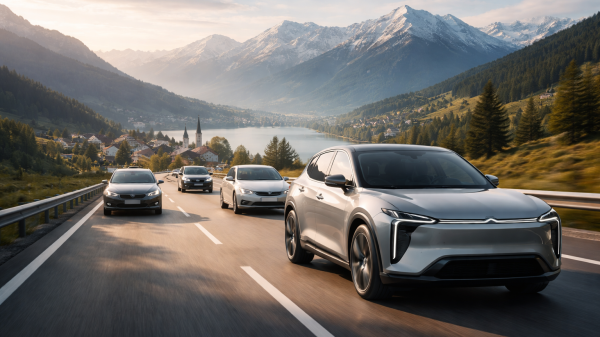The climate impact of the world’s wealthiest individuals extends far beyond their luxury consumption and energy use, with their investment portfolios representing a much larger, and often overlooked, contribution to global emissions, according to a new report.
The study, from researchers at the prestigious World Inequality Lab, argues that to truly address the climate crisis, policymakers must look beyond consumer habits and target the vast capital owned and controlled by the super-rich.
While the wealthiest 1% of the global population is responsible for 15% of all consumer-related emissions, their share of the world’s carbon footprint skyrockets when measured by the assets they own.
The study found that under this methodology, their share of emissions jumps to approximately 40%.
(Source: Bloomberg)
To arrive at this figure, researchers at the Paris School of Economics and the University of California at Berkeley attributed the emissions generated by companies directly to the owners of that capital.
For example, the carbon from oil extraction is assigned to the oil company’s stockholders, regardless of where they live or whether they use the energy produced.
“Wealth matters, perhaps even more than consumption, for understanding and addressing the climate crisis,” researchers Cornelia Mohren and Lucas Chancel said in an email to Bloomberg.
Because the wealthiest households own and control the capital that determines future emissions, climate policy must look beyond carbon taxes on consumers.
The study found that for the top 10% of richest individuals in the US, France, and Germany, about 75% of their emissions come from their assets.
For the top 1%, that share rises to a staggering 90%.
Outsourcing emissions: how wealthy nations pollute abroad
This investment-based footprint also has a distinct geographical pattern.
The researchers found that even as wealthy nations adopt more renewable energy at home, their citizens continue to generate massive emissions by owning carbon-intensive assets in other parts of the world, particularly the Global South.
The study tracked the operations of six major oil companies headquartered in Europe and North America and found that about half of their oil and gas fields are located in the Global South.
(Source: Bloomberg)
“Part of their apparent climate progress relies on outsourcing emissions through global capital markets,” the researchers wrote.
A new target for climate policy: decarbonizing portfolios
These findings, the researchers argue, have profound implications for climate policy.
Because the vast majority of the emissions from the wealthiest individuals are generated through their asset ownership, they could theoretically make significant cuts to their carbon footprint without altering their personal lifestyles.
The study suggests that achieving global climate goals will require a fundamental shift in focus: from taxing consumer behavior to redirecting massive capital flows away from polluting industries and toward public and green investments.
The researchers said:
Ultimately, the report shows that decarbonizing asset portfolios is at least as important as decarbonizing consumption patterns.
The post It’s not their jets, it’s their stocks: how the rich ‘outsource’ their carbon footprint appeared first on Invezz




































